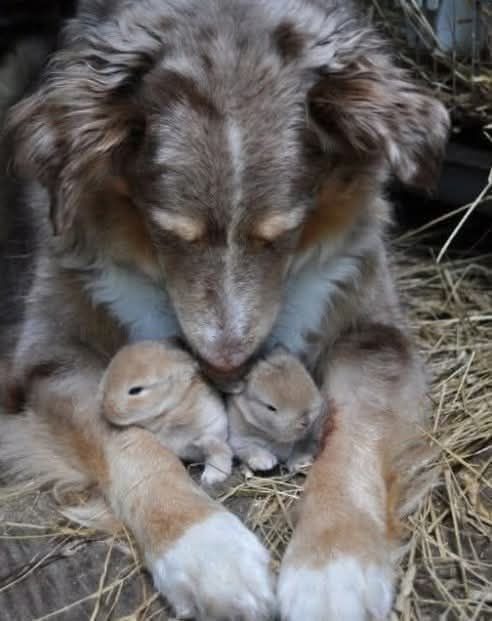If you have a garden, you know the frustration of an unseen visitor helping themselves to your harvest. I was living that frustration daily. My vegetables were under siege, and I was on a warpath, armed with deterrents and a trail cam, ready to declare victory over the local wildlife. Meanwhile, my dog, Runa, was retreating further into herself. A sweet, strong-willed shepherd mix, she had been grieving deeply, and her spirit seemed dimmed. Her absence at breakfast one morning sent me searching, a knot of concern in my stomach. I found her in the barn, and what I discovered there rewired my understanding of animal instinct. She was hidden behind some crates, and as I approached, I heard the softest mewling. There, curled against her, were two newborn wild rabbits. She was nursing them, licking them, and sheltering them as if they were her own puppies. The cognitive dissonance was staggering. This was the same dog who would point at squirrels in the trees. Then I discovered the source of her vigil: the body of the mother rabbit, who had clearly succumbed to exhaustion or injury after bringing her babies to this sheltered spot. Runa hadn’t just found them; she had accepted a sacred duty.
This was more than curiosity; it was interspecies motherhood. She displayed all the hallmarks of a devoted parent: protection, cleaning, and constant vigilance. I immediately shifted from being a frustrated gardener to a humble assistant in this incredible act of compassion. I provided support, but Runa was their true caretaker. She showed a patience and gentleness I hadn’t seen in her since her own loss. It was as if caring for these vulnerable creatures gave her own grief a purpose, a channel for her immense capacity to love. Experts might try to explain it away with theories about hormonal triggers or misplaced instinct, but to witness it was to see pure, unadulterated empathy. She understood their need and answered it without condition. When the day came for the young rabbits to venture into the world, Runa didn’t try to stop them. She simply watched them go, her work complete. The experience didn’t just save the bunnies; it brought my dog back to me. The light returned to her eyes, and a gentle peace settled where there had once been only sorrow. The garden, I learned, wasn’t being stolen from; it was a lifeline. Now, a missing carrot is a small price to pay for the profound lesson my dog taught me: that love and family are not defined by DNA, but by the choice to care for another soul in its time of greatest need.

